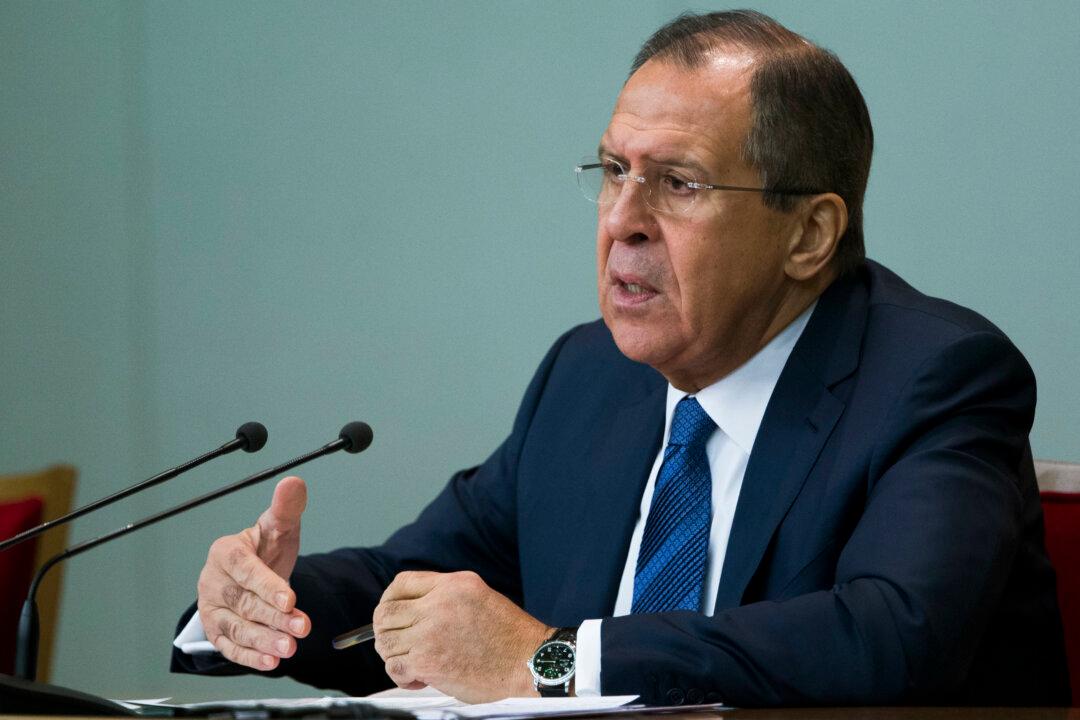MOSCOW—Russia on Tuesday argued strongly against Turkey’s demand to keep a leading Kurdish group out of Syria’s peace talks, and said it expects the U.N. envoy to resist “blackmail” by Turkey and others, reflecting sharp differences that remain ahead of the scheduled talks.
Russian Foreign Minister Sergey Lavrov rejected allegations that Moscow had offered Syrian President Bashar Assad to step down and could offer him a political asylum.
He specifically shrugged off reports last week claiming that Russia’s military intelligence chief had traveled to Damascus to try to persuade Assad to step down. Lavrov argued that there was no point to make such a trip as Assad visited Moscow in the fall and had extensive talks with President Vladimir Putin.






